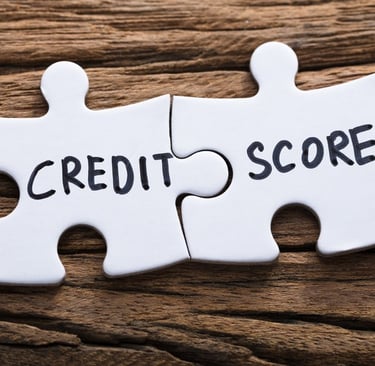Habits That Will Instantly Boost Your Credit Score (And Why It Matters)
Discover the 7 non-negotiable habits that directly impact your credit score, including the crucial 30% utilization rule. Learn actionable steps to see an immediate boost and unlock lower interest rates.
11/17/20253 min read


If you’ve ever felt lost in the complexity of personal finance, understanding your credit score might feel like the final, most confusing boss battle. But here’s the reality: Your credit score is the single most powerful number in your financial life.
Think of it as your financial GPA. A high score isn't just a badge of honor; it’s a non-negotiable key that can save you literally tens of thousands of dollars over your lifetime in lower interest rates on mortgages, car loans, and credit cards.
At FinScopeHub, we believe in clarity. We're cutting through the jargon to give you the seven simple, actionable habits you need to adopt today to start seeing a positive, long-term boost in your score. Master these, and you master your financial future.
The Core 7 Habits That Determine Your Score's Destiny
Understanding what moves the needle is everything. Your score is broken down into five categories, but these seven habits directly address the biggest pieces of the puzzle: Payment History (35%) and Amounts Owed (30%).
Habit 1: Never Miss a Due Date (The 35% Rule)
Your payment history is the single most important factor, making up a whopping 35% of your FICO score. Lenders want to see reliability. One late payment can cause a significant drop, sometimes taking months to recover from.
Action: Set up automatic payments for all your credit cards, loans, and even small bills. If possible, schedule the full statement balance to be paid automatically, not just the minimum.
Habit 2: Keep Your Utilization Below 30% (The 30% Sweet Spot)
This is where many people fail. Your Credit Utilization Ratio is the amount of credit you're using compared to your total available credit (e.g., a $1,000 balance on a $5,000 limit is 20% utilization). Experts say you should aim to keep this ratio below 30%, and world-class scorers keep it below 10%.
Action: If you can't pay off the full balance, make several small payments throughout the month rather than waiting for the statement date. Your score is calculated based on the balance reported to the bureaus.
Habit 3: Pay Off That Smallest Credit Card Now
If you have multiple cards with balances, focus on paying off the one with the smallest limit first, even if it doesn't have the highest interest rate. Why? Because eliminating the balance on that card immediately brings its utilization ratio down to 0%, instantly improving your overall ratio.
Action: Attack one low-limit card with a vengeance. Once paid, your credit report reflects a much healthier utilization immediately.
Habit 4: Become a Credit Limit Seeker (But Don't Use It!)
A sneaky but effective trick for instant score boosting is increasing your available credit. If you successfully ask your credit card company for a limit increase (e.g., from $5,000 to $8,000), but your balance remains the same, your utilization ratio drops immediately.
Action: Call your bank and ask for a limit increase. Crucially, do not spend the extra credit. This is the financial equivalent of a quick win.
Habit 5: Don't Close Old Accounts (The Age of Credit)
The length of your credit history accounts for about 15% of your score. When you close an old credit card, you effectively eliminate a piece of positive history and, more importantly, reduce your total available credit (see Habit 2).
Action: Keep your oldest accounts open, even if you only use them once every few months for a small, easily paid purchase to keep them active.
Habit 6: Mix It Up Wisely (Credit Mix)
Lenders like to see that you can handle different types of credit—this is called your credit mix (about 10% of your score). This means having a healthy combination of revolving credit (credit cards) and installment loans (mortgage, car loan, student loans).
Action: This is not a habit to force, but if you are already responsibly managing a car loan and a credit card, you are doing this habit correctly. Avoid opening new accounts just to "mix" your credit.
Habit 7: Check Your Report Annually (The Cleanup Habit)
Errors happen. Sometimes, a collection agency or a past lender reports incorrect information that drags your score down. You are legally entitled to a free report from each of the three major bureaus (Experian, Equifax, TransUnion) every 12 months.
Action: Pull your reports, audit them for errors (like payments marked late when they were on time, or debts that aren't yours), and dispute any inaccuracies immediately. Cleaning up a single error can provide an instant jump
The Bottom Line: Why Credit Score Mastery is Non-Negotiable
Remember, your credit score is your access pass to financial opportunity. It influences everything from the deposit you have to pay on a rental property to whether you can get a loan to start a new business.
By adopting these seven habits, you are not just improving a number; you are optimizing your life for the best possible financial terms. Start with Habit 1 today, and watch your number (and your opportunities) grow.
